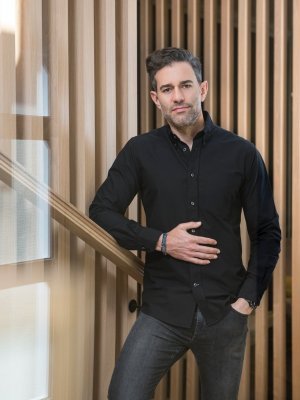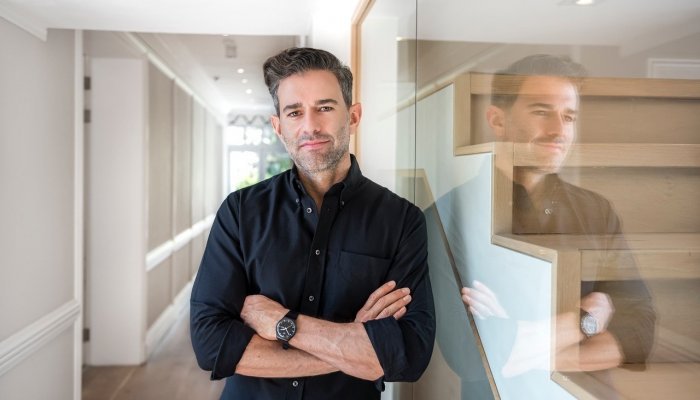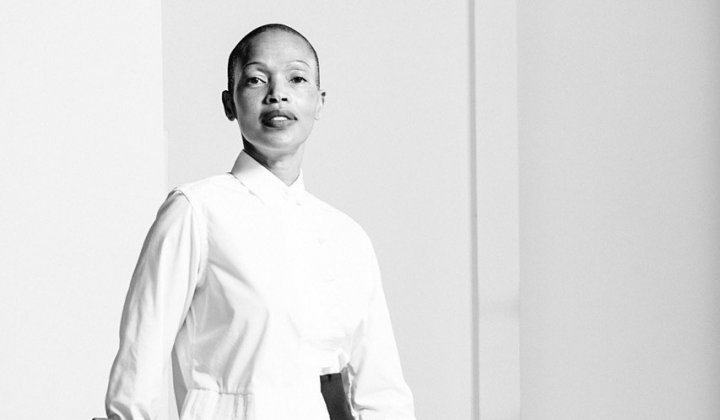I suppose I’m what people call a ´serial entrepreneur’. I’ve been an entrepreneur all my life – mostly an unsuccessful one in my younger years. I’ve started a few businesses and failed countless times.
One of my first businesses was selling my family’s clothes at the Morningside Centre’s taxi rank. I would sell R500 items of clothing for R15. The margins were fantastic because my cost of sale was zero. My clients were delighted, though my parents weren’t too pleased with that business model.
In the days before online grocery purchases, a friend and I started a shopping and delivery service. For a 10% fee, we would collect shopping lists from housewives, do their shopping, and deliver and unpack their groceries. Unfortunately, we hadn’t factored in petrol and parking fees. With 5,000 printed flyers and three clients later, we had already failed.
What these ventures had in common was the search for a problem and the drive to create a solution. That’s essentially how I define an entrepreneur: someone who spots opportunities, puts themselves in their potential clients’ shoes, creates a solution, and executes it well.
Fast forward to 2013. I had returned to South Africa after six years working in London and spent a few years in private equity doing mining and exploration deals in Africa. Fellow entrepreneur, Daniel Moritz, and I realised how difficult it was to raise capital as a small business. The problem is the old way of lending, which starts by looking at your financials, your securities and collateral. The reality is that nine out of ten South African entrepreneurs don’t have that – certainly not in the early days of starting their venture.
Our idea was to launch an unsecured working capital cash advance for businesses in the retail space that had been trading for at least 12 months, taking a fixed percentage of every card transaction to repay the loan. We wanted to make the application process and product on-boarding as quick and frictionless as possible.
And so, Merchant Capital was born.
We chose retail because our research told us that it was an under-serviced market segment, and it had sufficient margins to afford our product. We aimed to provide a simple cashflow-friendly product that would cater to the pain points and the challenges that small businesses typically face when looking to acquire working capital, including time. We automated and digitised our on-boarding process with approval and funding happening the same day.
In eight years, we’ve lent over R2 billion to more than 10,000 small businesses. Of these businesses, 80% come back for a re-advance. For us, the acquisition costs of getting a new small business on board are high. But once they’re back for their second, third and fourth advances, it costs us nothing to service them and our product becomes a part of the DNA of their business.
Building critical mass in a business
When we started the business, we had no track record or branding, and yet, our product was and is hugely successful in the US. Practically every restaurant in New York uses a merchant cash advance. I found 10 of the top lenders in New York and started cold calling them to set up meetings.
I set-up seven meetings, and by the time I left, three of them were gagging to get in on the opportunity. They couldn’t believe there was a sophisticated financial services industry in South Africa and saw the opportunity to leverage their multimillion-dollar infrastructure to go into an uncontested market.
We ended up partnering with the second-largest lender in the US – Merchant Cash and Capital. They never took an equity stake or put any capital into the business, but we got to use their systems and learned a huge amount from them.
So, when we approached potential investors in South Africa with the Rolls Royce of the industry in the US as our partner, we suddenly had gravitas. Since then, we’ve partnered with Capricorn and Rand Merchant Investment Holdings and more recently with Standard Bank, which has become an equity shareholder, and sell our product to their large base of small business clients.
The lesson? If you’re trying to infiltrate a segment of the market where credibility is important, find someone with a track record to be a partner, supplier or client, because, in life and business, perception is reality.
The long road to success
Merchant Capital’s first day in business was on 13 April 2013. I thought, ‘We’ve got a lending product, so who’s the first person you offer an unsecured loan to? Unbanked people. Township business owners. Surely these guys need us.’
Twenty shebeen, tavern and nightclub owners later and we had 20 ‘no’s’.
On our way home, we pop into China Mall. Seven levels of shops, all Chinese. Challenge 1: they don’t speak much English. Challenge 2: culturally, they don’t take out credit. Another 20 ‘no’s’.
As we’re leaving, I spot a small shop run by two Muslim gentlemen. The younger guy, Mohammed junior, translates our pitch to Mohammed senior. After 10 minutes of back and forth, Mohammed junior says: ‘Yes, we’re in’. We signed a loan contract of R75,000 on the spot, with no credit check. I thought we would never see that money again, but we had done our first deal.
At the end of the day, we get an email telling us how much money we’ve taken off each transaction at the store. Tuesday, 0. Wednesday, 0. Thursday, 0. Friday, 0. What kind of a business doesn’t make one sale during the week? We asked them what they used the money for and they said they’d filled up one corner of the shop with gas heaters for winter.
The next Monday, the shop did R1,000. We got R100. Tuesday, they did R3,000. Wednesday, R5,000.
This small business became one of our best customers. Mohammed re-advanced 13 times, for a total of R2.75 million. His business grew by 300%, and he opened two more retail stores. He said that he would never have had a business without us as the banks would not look at him.
That’s how hard it is to start a business. You’ve sometimes literally got to walk the streets. But it was all worth it.
How to scale
You need a few things to scale a business: the right people, enough funding, and a product that your clients want to buy.
We couldn’t afford senior people for four years, so we trained and mentored people. Back in 2013, our admin assistant was barely out of school and working her first job. Today, she’s an integral part of the business.
You need to ask what the most important resource is that your business needs. Find the best possible person you can find, and afford, for that role.
To really scale a business, you need a partner with a high profile and deep pockets. Our business really took off when Rand Merchant Investment Holdings bought into Merchant Capital in August 2016. What it meant was that we had to grow up very quickly indeed.
The "secret sauce" for success as an entrepreneur is attracting big investors, while still keeping your entrepreneurial spirit. Find partners that won’t snuff out your entrepreneurial flame.
Of course, the caveat of getting an investor is that you give up equity early at a low value. But it is a non-negotiable if your ambition is to build a large scalable business.
KEY TAKEAWAYS
- Find a problem, and then create a solution to that problem.
- You will fail at least once. The key is to keep refining your thought process through the failures.
- Attract big investors but keep your entrepreneurial spirit.
- Invest in the right people. You can’t scale without them.
BIO
Dov Girnun
Dov Girnun is Entrepreneur in Residence at GIBS for the MBA Entrepreneurship Focus programme, and founder and CEO of Merchant Capital, a Johannesburg-based fintech that helps South African SMEs grow by providing quick, simple access to unsecured working capital. A successful entrepreneur passionate about growing small businesses and watching them succeed, he holds qualifications from Harvard Business School and Stanford University’s Graduate School of Business.






